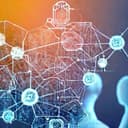Dive deep into the insights and expertise crafted by our dedicated team of AI specialists.
Explore the innovation that is driving the future.
 29 August 2024
29 August 2024Artificial Intelligence (AI) has revolutionized numerous industries, and biotechnology is no exception. Modern AI techniques are being applied to various facets of biotech, from drug discovery to genetic engineering and personalized medicine. In this blog post, we’ll explore some of the most exciting applications of AI in biotechnology and how they are transforming the field.
One of the most impactful applications of AI in biotech is in drug discovery. Traditionally, drug discovery is a lengthy and costly process, often taking years and billions of dollars to bring a new drug to market. AI is changing this paradigm by significantly accelerating the process and reducing costs.
Predicting Drug-Target Interactions: AI algorithms, especially deep learning, can analyze vast datasets to predict interactions between drugs and their biological targets. This helps identify potential drug candidates much faster than traditional methods.
Drug Repurposing: AI can also analyze existing drugs to find new therapeutic uses. By identifying patterns and relationships within biological data, AI models can suggest alternative uses for drugs that might not have been considered otherwise.
Simulating Clinical Trials: AI-powered simulations can predict how drugs will behave in the human body, which helps in optimizing clinical trials. This can reduce the number of actual trials needed, speeding up the time it takes to bring a drug to market.
AI is playing a crucial role in the field of genomics, where understanding the human genome can lead to breakthroughs in disease prevention, diagnosis, and treatment.
Genomic Data Analysis: The human genome consists of approximately 3 billion base pairs, creating a massive amount of data. AI algorithms are capable of sifting through this data to find mutations and variations that could lead to diseases.
CRISPR and Gene Editing: AI is enhancing the precision of gene-editing tools like CRISPR. Machine learning models can predict off-target effects and optimize the editing process to ensure only the desired changes are made to the genome.
Personalized Medicine: By analyzing a patient's genetic makeup, AI can help in creating personalized treatment plans. This ensures that patients receive the most effective therapies based on their unique genetic profile, reducing the trial-and-error approach often seen in medicine.
Proteins are the workhorses of the cell, performing a vast array of functions. Understanding their structure and function is vital for developing new therapies.
Protein Folding Prediction: Predicting how proteins fold into their three-dimensional structures has been a significant challenge in biology. AI, particularly deep learning models like AlphaFold, has made tremendous progress in predicting protein structures with high accuracy. This advancement accelerates the development of new drugs and therapies.
Synthetic Biology: AI is used in designing new proteins with specific functions, a field known as synthetic biology. By predicting how changes in amino acid sequences affect protein function, AI can help design proteins for industrial applications, such as enzymes in biofuels or biodegradable plastics.
AI is revolutionizing diagnostics and medical imaging, providing tools that can detect diseases earlier and more accurately than traditional methods.
Image Analysis: AI algorithms are trained to recognize patterns in medical images, such as X-rays, MRIs, and CT scans. These tools can detect anomalies like tumors or fractures with high precision, sometimes even better than human radiologists.
Predictive Diagnostics: AI can analyze patient data, including genetic information, medical history, and lifestyle factors, to predict the likelihood of developing certain conditions. This allows for early interventions and better management of diseases.
AI is also enhancing the efficiency of biomanufacturing processes, which are crucial for producing pharmaceuticals and other biotech products.
Process Control: AI models can monitor and control biomanufacturing processes in real-time, ensuring optimal conditions for cell growth and product yield. This reduces waste and lowers production costs.
Quality Assurance: Machine learning algorithms can predict potential failures or deviations in the production process, allowing for proactive adjustments and ensuring consistent product quality.
While AI is transforming biotechnology, it is not without challenges. Data privacy and security, the need for high-quality data, and the ethical implications of AI-driven decisions are significant concerns that need to be addressed.
Looking forward, the integration of AI with other cutting-edge technologies, such as quantum computing and blockchain, could further enhance its capabilities in biotech. Collaboration between AI experts, biotechnologists, and regulatory bodies will be crucial to navigating these challenges and ensuring that AI in biotech continues to develop in a way that is ethical, safe, and beneficial for society.
AI's application in biotechnology is opening new frontiers in medicine and life sciences. From accelerating drug discovery to enabling personalized medicine, AI is proving to be an indispensable tool in modern biotech. As we continue to develop and refine these technologies, the potential for AI to revolutionize the field further seems limitless.
—------------------------------------------------------------
This summary was written with the help of ChatGPT
Sekuen: Your AI Partner for Tailored Solutions and Expertise
Build your next gen biotech with Sekuen
PhDs and engineers in biochemistry and data science
If you want a similar content for your products and services, reach out:
https://www.sekuen.com/#contact
Or start with a live chat with Sekuen after you follow our page on LinkedIn












